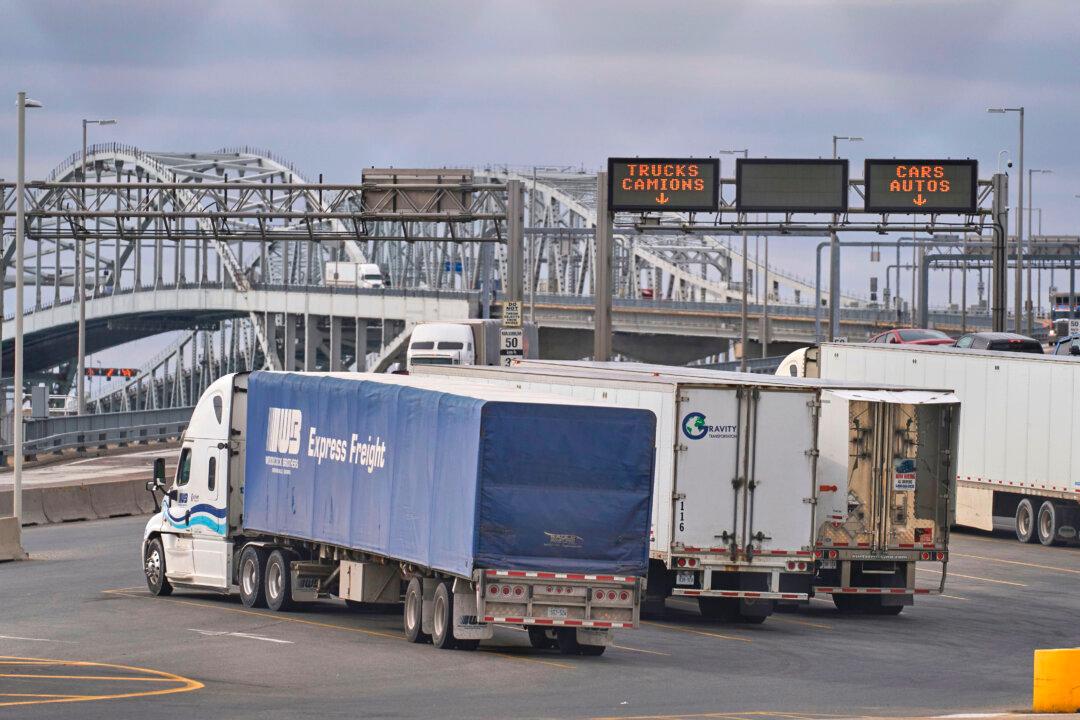A convoy of truck drivers took to the streets on Highway 75, Emerson, Manitoba near the U.S.-Canada border on Jan. 17 following the introduction of new COVID-19 vaccination requirements on truckers put in place by the Canadian and U.S. governments.
The Royal Canadian Mounted Police (RCMP) said that a “large number of vehicles” were involved in the “demonstration” near the Emerson Port of Entry, affecting both northbound and southbound lanes. The RCMP was monitoring traffic flows onsite.




